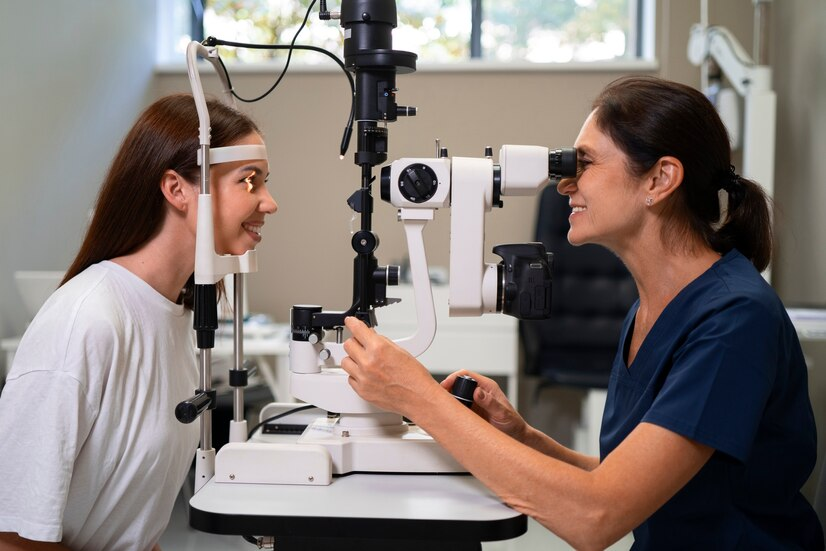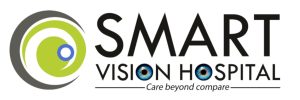We provide you the best Ophthalmology treatment in Chennai

At Smart Vision Hospital, we specialize in neuro-ophthalmology, a unique field that bridges the gap between neurology and ophthalmology. Our focus is on the intricate relationship between your eyes and your brain, addressing vision problems that stem from neurological or systemic disorders. These conditions often present complex diagnostic and management challenges, which is why our team of expert neuro-ophthalmologists is here to help.
Understanding Neuro-Ophthalmology
Neuro-ophthalmology deals with visual issues caused by problems within the nervous system. These can include conditions like optic neuritis, which is inflammation of the optic nerve, or visual field defects caused by brain tumors or strokes. Such disorders can significantly impact your vision and overall quality of life, making early and accurate diagnosis crucial.
Common Conditions Treated
Our neuro-ophthalmology services cover a wide range of conditions, including but not limited to:
- Optic Neuritis: Inflammation of the optic nerve that can cause sudden vision loss, often associated with multiple sclerosis.
- Papilledema: Swelling of the optic disc due to increased intracranial pressure, which can lead to severe vision problems if not treated.
- Visual Field Defects: Loss of vision in certain areas, which may be caused by brain tumors, strokes, or other neurological conditions.
- Diplopia (Double Vision): Often resulting from nerve damage or muscle weakness, requiring precise diagnosis and tailored treatment.
- Nystagmus: Uncontrolled eye movements that can affect vision and balance, often linked to neurological disorders.
- Cranial Nerve Palsies: Affecting the nerves that control eye movement, leading to misalignment and vision issues.
Our Approach to Care
At Smart Vision Hospital, we understand that your vision is not just essential; it’s a window to your world. Our comprehensive neuro-ophthalmology services are designed to address complex visual issues related to the nervous system and the eyes. We take a patient-centric approach, ensuring you receive personalized care that targets your specific needs.
Advanced Diagnostic Tools
Our state-of-the-art facility is equipped with advanced diagnostic tools to accurately identify and assess neuro-ophthalmic conditions. These tools include high-resolution MRI and CT scans, visual field testing, and optical coherence tomography (OCT). These technologies enable our specialists to pinpoint the root cause of your symptoms and develop an effective treatment plan.
Treatment Options
Treatment in neuro-ophthalmology can vary widely based on the underlying condition. Our treatment options include:
- Medical Management: Using medications to reduce inflammation, manage symptoms, or address underlying systemic conditions.
- Surgical Interventions: In cases where surgery is necessary, our experienced surgeons work to correct issues like brain tumors or structural abnormalities.
- Vision Therapy: Customized exercises and therapies to improve eye movement coordination and visual function.
- Rehabilitation Services: Helping patients adapt to vision changes through training and assistive devices.
FAQs on Neuro-Ophthalmology
Neuro-ophthalmologists take care of visual problems that are related to the nervous system; that is, visual problems that do not come from the eyes themselves. We use almost half of the brain for vision-related activities, including sight and moving the eyes. Neuro-ophthalmology, a subspecialty of both neurology and ophthalmology, requires specialized training and expertise in problems of the eye, brain, nerves and muscles.
Optic nerve problems (such as optic neuritis and ischemic optic neuropathy), visual field loss, unexplained visual loss, transient visual loss, visual disturbances, double vision, abnormal eye movements, thyroid eye disease, myasthenia gravis, unequal pupil size, and eyelid abnormalities.
Treatment depends on the diagnosis and its impact on the overall lifestyle of the patient. Co-relation of the problem with any known or unknown systemic disorders are done.
All depends on the condition and the treatment accorded. The follow up pattern is carefully individualized.
Neuro Ophthalmology is a speciality in medicine that is related to the visual problems prevailing in the nervous system. In other words, neuro ophthalmologist is a person who specializes in the nerves related problems in the eye. They treat cases that are related to the optic nerves and also vision loss due to an injury in the head especially brain.
Patients who have suffered a stroke, severe brain injury, double vision, visual midline syndrome, loss of one of the eye, light sensitivity, post trauma vision syndrome can be referred to a neuro ophthalmologist for further examination and treatment. This kind of cases relating to neuro ophthalmology should be treated on time to get the best results. Otherwise it may lead to loss of optic nerve which is required for proper vision.
Optic neuritis is a condition where the optic nerve is damaged due to an inflammation. Optic neuritis can cause temporary vision loss and pain in one of the eye. If diagnosed on time, this can be treated and vision can be restored.

